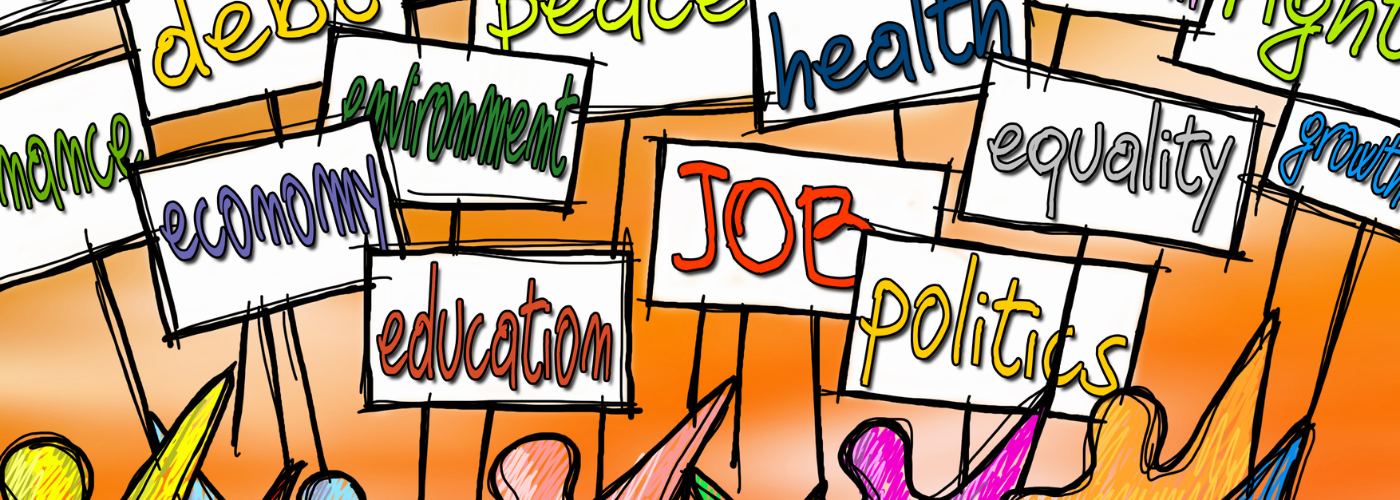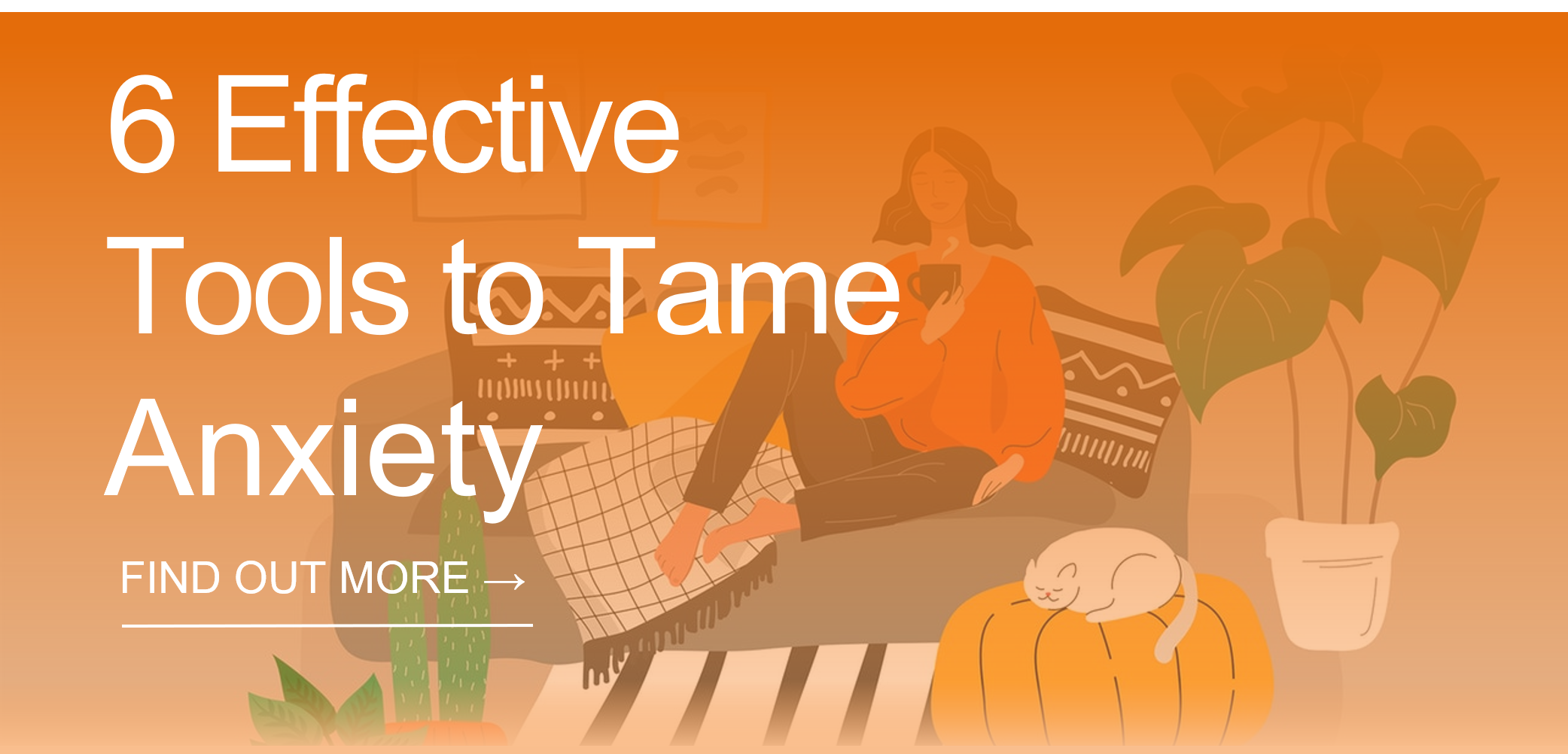Many of us are waiting and wondering what will happen in the November election - and what will happen after the election?
You might be thinking, “Should I be worried? What should I do? How do I want to approach this?” For most of us, we’re living in a different world than what we’re accustomed to, and it’s normal to want to (finally) relax a bit and go about our lives like we used to.
We’ll also use a variety of approaches to manage our uncertainty. Some people plan to take whatever happens in stride and move on with their daily lives as they always have, regardless of outcomes. Some are preparing for the worst to happen (however they define it) and they are planning approaches that line up with those expectations. Others will take a wait-and-see approach, neither relaxing nor taking active steps. Yet others may find that it’s hard to move forward or plan for the future these days.
In this article, we’ll focus on uncertainty – what brings it on, recognizing it, and creating a plan to manage it.
We’re all facing uncertainty.
It happens when we’re not sure what the future will bring. We deal with uncertainty every day, and usually manage pretty well. But when very big or important things are uncertain, it can really bother us. In fact, most of world’s efforts and advancements through the ages are aimed at reducing uncertainty and make our world more predictable so our lives are easier. Most people want to be in control of the important things in our lives--the more important they are, the more that not knowing what will happen will affect us.
Let’s take a look at some things that can trigger uncertainty and anxiety:
• Hearing news that is alarming or frightening – something that might affect you or loved ones
• Realizing that unexpected and even unpleasant things might happen to you, family or friends -- and not feeling prepared to deal with them, especially if you’ve never worried about this in the past
• Not knowing what your near future will look like
• Not knowing the outcomes of the election (or any major event in our lives) right away
• Thinking you know somebody well, and then they do something unexpected
• Loss of anything important to us – a person, a job, a lifestyle, where you live, our health
• A gain of something unexpected – a new roommate, a new job, a new medical condition
Here are some results of experiencing
uncertainty and its partner, anxiety
• More anxiety
• Having really intense negative emotions – those that we may not have a lot of practice dealing with
• Feeling angry enough about something (that we) do or say something we wouldn’t normally do or say. Examples are excessive blaming of others, finger pointing, name calling, intense arguing, shouting, not making any effort to listen to others
• Just about anything taken to an extreme – food, exercise, alcohol, spending, binge watching your favorite shows nonstop, spending most of your free time on the internet
• Abandoning our normal routines, as we generally count on them to bring stability to our lives.
• Any of these: Having racing thoughts. Making more mistakes than usual. Feeling angry in general. Having trouble focusing. Letting little things really get to us. Having more arguments and disagreements with loved ones and friends Taking on the biggest cleaning binge of your life. Becoming obsessed with something that normally we wouldn’t. Moping when we typically don’t mope. Withdrawing from others. Ruminating (the same thoughts running over and over in your mind). Not sleeping well. Emotional exhaustion. Resignation.
Get the Ultimate Guide to Taming Anxiety!
Managing uncertainty. The little steps you take
can really make a difference. First, give your
thinking a gentle adjustment:
• Remind yourself that some of what we’re going through these days is pretty much outside of our normal range of experience, and it’s common to have ‘outside of normal’ reactions.
• Realize that feelings don’t get us into trouble, but our actions can. That’s where our ability to make a choice comes in.
• Recognize that uncertainty is part of living an interesting life, and some uncertainty will always be with us.
• Accept that how we see things may not be how others in our lives see them. Not right or wrong, just different.
• Most people actually have good intentions behind what they do, and are acting on what they believe will make the world better. Try giving them (and yourself) the benefit of the doubt. If you have trouble doing this, try thinking about it from another perspective: “What is a reason that my friend sees things in that way? What might their intention be when they do something different than I do?”
Do something different that serves you
and doesn’t drag you down.
• As much as you can, avoid being hard on yourself and others during these days.
• Give yourself some time away from the media every day. Yup, every day. Even if it’s only 5 or 10 minutes.
• Take some deep breaths. This really does work. Sometimes it takes a little practice - make sure you are breathing slowly, from your abdomen, and not just your shallow breaths from your chest.
• Then take 30 seconds to remind yourself of just one thing that is important to you.
• Identify a couple of your more unpleasant emotions. This might be harder than you think. Talk to someone you trust. Observe how your body reacts. (Tension, stomach upset, unable to sit still, etc.) When we face our reactions and feelings, it helps us gain better control of them. This works even if we do it little by little.
• You’ve heard this from your mom, your doctor, your friend, your personal trainer, your spouse and even your kids. You’ve probably read about it a hundred times. It’s still true. Take care of your body as best you can. Get enough restful sleep, eat a nutritious diet, exercise regularly. All of these actions help reduce the anxiety and stress.
Now more than ever, your employees need emotional support and resources. The pandemic has created a whole new set of physical, financial and emotional stressors that have woven their way into the home and workplace.
Hundreds of organizations support their employees through The Ulliance Life Advisor Employee Assistance Program (EAP). Investing in the right EAP to support your employees before, during and after they face adverse events will help them and help you. Visit www.ulliance.com, or call 866-648-8326.
 When you partner with Ulliance, our Life Advisor Consultants are always just a phone call away to teach ways to enhance your work/life balance and increase your happiness. The Ulliance Life Advisor Employee Assistance Program can help employees and employers come closer to a state of total well-being.
When you partner with Ulliance, our Life Advisor Consultants are always just a phone call away to teach ways to enhance your work/life balance and increase your happiness. The Ulliance Life Advisor Employee Assistance Program can help employees and employers come closer to a state of total well-being.
Combining years of clinical experience and the formation of a meaningful partnership with an organization’s human resources department, Ulliance is among the best EAP providers, and our experts can tailor recommendations for a variety of work\life circumstances.
Investing in the right EAP or Wellness Program to support your employees will help them and help you. Visit www.ulliance.com, or call 866-648-8326.
The Ulliance Employee Assistance Program can address the
following issues:
• Stress about work or job performance
• Crisis in the workplace
• Conflict resolution at work or in one’s personal life
• Marital or relationship problems
• Child or elder care concerns
• Financial worries
• Mental health problems
• Alcohol/substance abuse
• Grief
• Interpersonal conflicts
• AND MORE!


